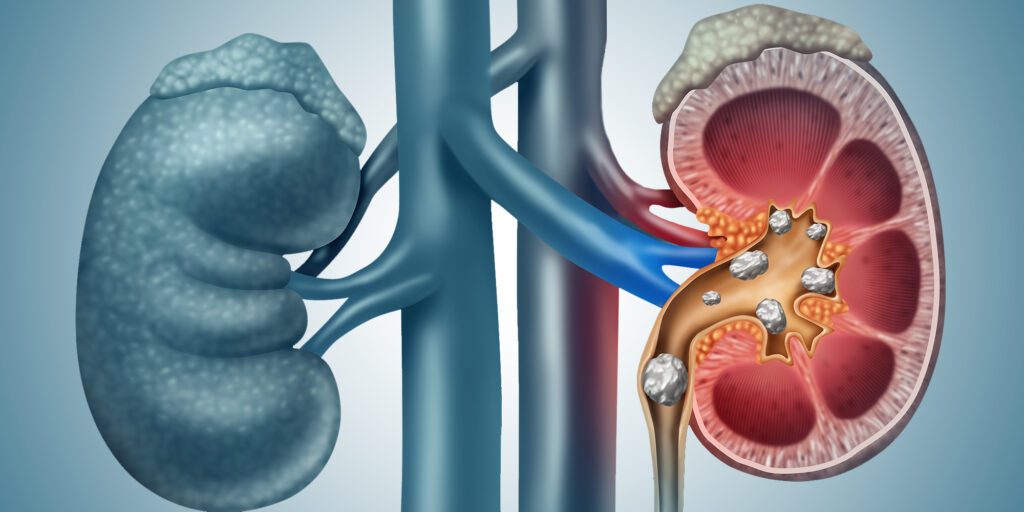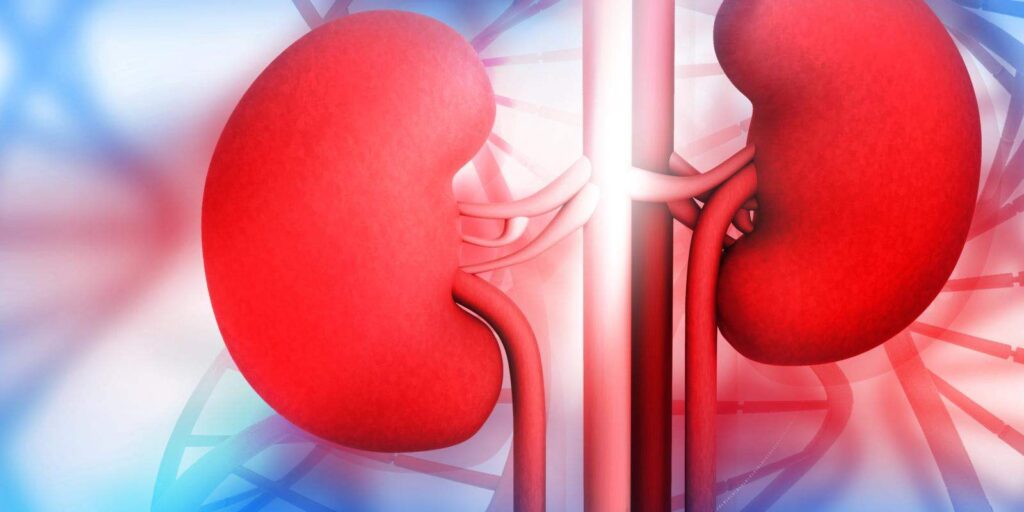Chronic Kidney Disease Homeopathy Treatment: A Natural Approach to Managing Renal Health
Chronic Kidney Disease (CKD) is a prevalent condition that affects millions globally, characterized by a gradual loss of kidney function over time. If left untreated, CKD can lead to severe outcomes, including kidney failure. While conventional medicine plays a critical role in managing CKD, many patients seek complementary treatments to mitigate symptoms and improve quality of life. Homeopathy offers a unique holistic approach, potentially easing various CKD symptoms by stimulating the body’s natural healing processes. This comprehensive blog explores how homeopathy can be integrated into the management of chronic kidney disease, offering a gentler alternative to conventional treatments. Also Read Homeopathy Treatment For Chronic Kidney Failure.
Understanding Chronic Kidney Disease
Chronic Kidney Disease involves the progressive loss of renal function over months or years. Early stages often have few symptoms, which can make initial detection difficult. As the disease progresses, symptoms such as nausea, vomiting, sleep problems, fatigue, and changes in urine output can occur. Advanced stages can lead to dangerous levels of fluid, electrolytes, and wastes building up in the body, which are typically managed with dialysis or a kidney transplant.
The Role of Homeopathy for Chronic Kidney Disease Management
Homeopathy is based on the principle of “like cures like,” suggesting that substances capable of causing disease symptoms in healthy people can treat similar symptoms in sick people when provided in much lower doses. For CKD, homeopathy is considered a supportive treatment to potentially enhance renal function and help manage symptoms associated with kidney disease. It focuses on the patient’s individual symptoms, their physical and psychological state, and their overall health history. At Aura Homeopathy Clinic we strictly follow Classical Protocols of Homeopathy for Chronic Kidney Disease Treatment.
Top Remedies in Homeopathy for Chronic Kidney Disease
Several homeopathic remedies are noted for their potential benefits in managing symptoms of CKD. It’s important to consult with a professional homeopath who can tailor remedies to your specific condition. Some commonly recommended homeopathic medicines for CKD include:
- Apis Mellifica: Useful for reducing inflammation and swelling, Apis Mellifica is often used in cases where edema (fluid retention) is prominent, especially if the patient reports discomfort and stinging pains that improve with cold applications. Among the top used medicine in Homeopathy for Chronic Kidney Disease Treatment.
- Arsenicum Album: Recommended for patients who experience high levels of anxiety, restlessness, and thirst. It is particularly useful when the skin appears dry and the patient suffers from simultaneous nausea and fatigue.
- Berberis Vulgaris: Known for its effectiveness in renal conditions, particularly if there are complications such as kidney stones. It can help manage pain radiating from the kidneys to the bladder and improve overall kidney function.
- Cantharis: Often used for urinary tract infections and intense, burning pains in the urinary tract, which can be a complication of CKD.
- Serum Anguillae (Eel Serum): This remedy is used to help reduce creatinine levels and improve the filtering capacity of kidneys, making it suitable for managing more severe symptoms of CKD.
Integrating Homeopathy into CKD Treatment
When integrating homeopathy into a CKD treatment plan, it’s crucial to do so under the guidance of a healthcare professional who understands both homeopathy and nephrology. Homeopathic treatment should be viewed as complementary to conventional treatments like medication, dietary restrictions, and dialysis. Homeopathy for Chronic Kidney Disease may help alleviate some symptoms of CKD and improve life quality but should not replace conventional medical treatments prescribed by healthcare professionals.
Lifestyle Changes to Support Kidney Health
Alongside homeopathy, making certain lifestyle changes can significantly benefit those with CKD:
- Maintain a Balanced Diet: Focus on a kidney-friendly diet that limits sodium, potassium, and phosphorus intake.
- Manage Blood Pressure and Diabetes: Keeping blood pressure and blood sugar levels under control can significantly slow the progression of CKD.
- Regular Exercise: Staying active can help maintain overall health and manage CKD symptoms.
- Avoid NSAIDs: Non-steroidal anti-inflammatory drugs can worsen kidney function.
Foods to Eat in CKD
These foods are generally safer for individuals with CKD due to their lower content of potassium, phosphorus, and sodium.
- Low-Potassium Foods:
- Apples, cranberries, grapes, pineapples, and strawberries
- Cauliflower, onions, bell peppers, radishes, and summer squash
- High-Quality Protein:
- Egg whites provide high-quality protein with less phosphorus than other protein sources like egg yolks or meats.
- Lean cuts of meat (in moderation), like chicken, beef, and pork
- Fish (also in moderation)
- Whole Grains (that are lower in phosphorus):
- Buckwheat
- Bulgur wheat
- Pearled barley (note that whole grain barley is high in phosphorus, so portion control is necessary)
- Wild rice
- Heart-Healthy Oils:
- Olive oil
- Sunflower oil
- Canola oil
- Low-Phosphorus Dairy or Dairy Alternatives:
- Rice milk (not enriched)
- Almond milk (careful with commercial brands, which may be enriched with calcium and phosphorus)
Foods to Avoid in CKD
These foods are typically high in potassium, phosphorus, or sodium, which can burden weakened kidneys.
- High Potassium Foods:
- Bananas, oranges, potatoes, spinach, and tomatoes are typically high in potassium.
- Avocado, cooked spinach, and baked potatoes should be especially avoided.
- High Phosphorus Foods:
- Dairy products like milk, cheese, and yogurt
- Nuts and seeds
- Beans and lentils
- Whole grains (some are higher in phosphorus than others)
- High Sodium Foods:
- Processed foods such as frozen meals, canned soups, and fast foods.
- Cured meats like ham, bacon, or sausages.
- Snack foods like chips, crackers, and pretzels.
- Protein:
- Reducing overall protein intake is often recommended because metabolizing protein produces waste products that the kidneys need to filter.
- However, protein needs can vary, so it’s essential to discuss with a healthcare provider.
General Dietary Tips for CKD
- Monitor Fluid Intake: Depending on your stage of CKD, you might need to limit fluid intake to avoid fluid overload, which can lead to complications like hypertension and heart failure.
- Limit Phosphorus: Phosphorus can build up in the blood when kidneys are not functioning correctly, leading to bone and heart issues. Phosphorus levels are high in processed and preserved foods.
- Control Potassium Levels: Potassium levels can also build up in the blood in CKD. High potassium levels affect the heart’s ability to function correctly, potentially leading to a heart attack.
- Cut Down on Sodium: Reducing sodium intake helps control blood pressure, reducing the risk of CKD progression and cardiovascular complications.

Homeopathy for Chronic Kidney Disease
While chronic kidney disease is a serious condition that requires careful management, incorporating homeopathy could offer additional support by alleviating symptoms and enhancing quality of life. By focusing on the individual and treating symptoms with natural substances, homeopathy provides a personalized and holistic approach to health that can be a valuable part of comprehensive CKD management. Always consult healthcare and homeopathic professionals to tailor a safe and effective treatment plan. Also read Homeopathy Treatment for kidney patient.
Managing Chronic Kidney Disease (CKD) involves careful attention to diet to help maintain kidney function and prevent further damage. Here’s a guide on what to eat and what to avoid if you have CKD, aimed at minimizing the kidneys’ workload and ensuring optimal health.


